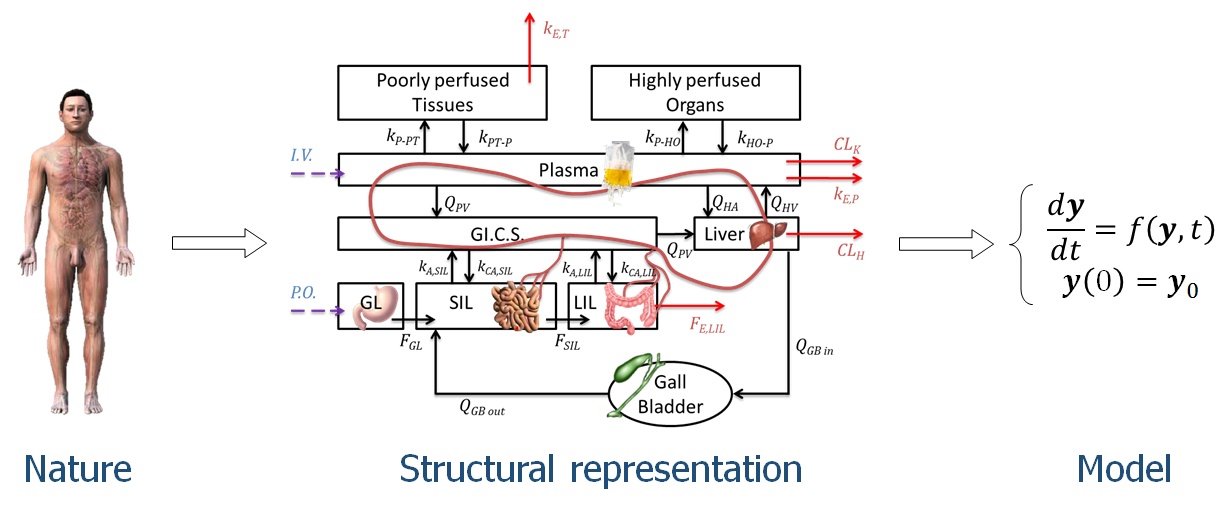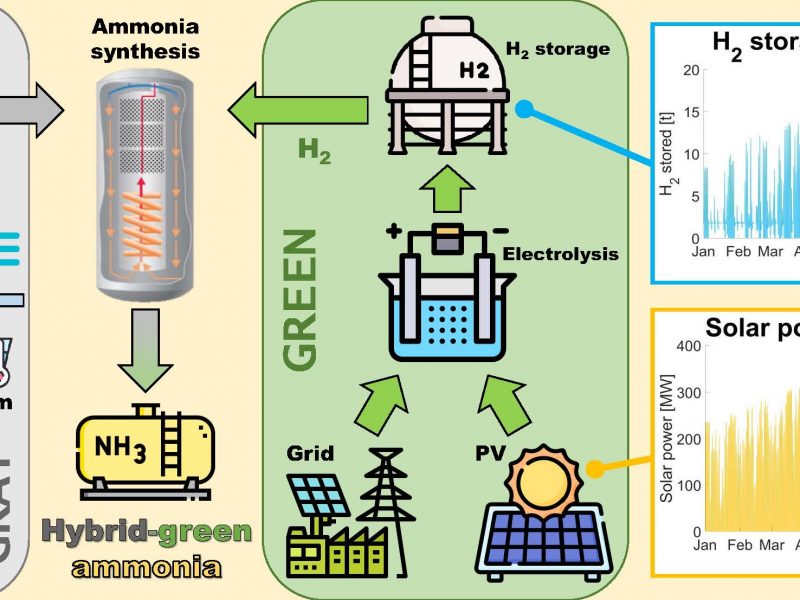The knowledge of drug concentration-time profile in human body is crucial information for any kind of pharmacological treatment of diseases, furthermore it helps pharmaceutical companies developing new drugs.
Within the major field of pharmacology, pharmacokinetics is defined as the science that studies the effects of the organism action on the drug molecules. In general, any time a pharmacological treatment is given to a patient, drug molecules enter an extremely complex and dynamic environment, namely the human body.
All the phenomena involving the drugs within the human body are recalled with the acronym ADME, i.e. Absorption, Distribution, Metabolism and Elimination. The comprehension of these phenomena is crucial for the definition of pharmacokinetic models and requires the synergy of different sciences, for instance anatomy, physiology, chemistry, physics, statistics and interestingly some aspects typical of chemical engineering background: transport phenomena, reaction kinetics, process dynamics, and numerical analysis.
At PSE-Lab we pursue the definition of an advanced mathematical model based on mammalian physiology, to describe pharmacokinetic behavior of drugs. Our main activities are:
- Definition and improvement of a physiologically based pharmacokinetic model PBPK;
- Development of individualization strategies to reduce unpredictability due to inter-individual variability in human subjects;
- Combination of pharmacokinetic (PK) and pharmacodynamic (PD) predictions PK/PD.
Read Pharmacokinetic modeling: methods, potentials and perspectives for further information.



